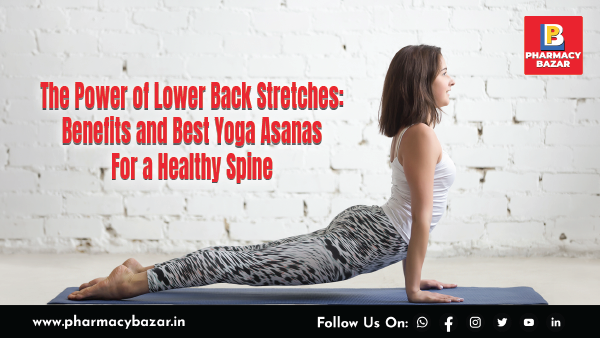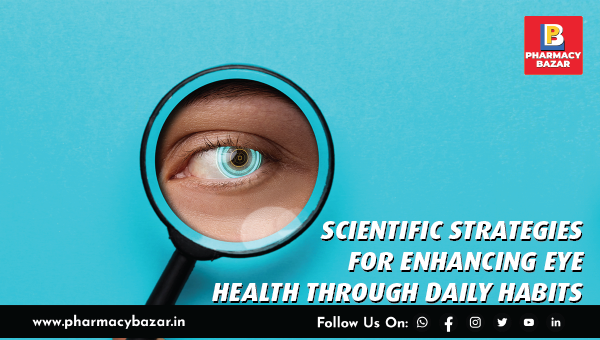Scientific Strategies for Enhancing Eye Health through Daily Habits
Feb 19, 2024
Introduction:
The human eye, a remarkably sensitive organ, demands vigilant care to maintain optimal health. Habits that prioritize eye well-being should be integral to our daily routines. Whether it's combating the impact of dust or mitigating the strain induced by excessive screen time, our eyes require consistent attention. Recognizing signs such as itchiness, teary eyes, or irritation is crucial, prompting us to adopt practices that fortify and enhance our vision. In this scientific exploration, we delve into five evidence-based habits for superior eye health.
Habit 1: Nutrient-Rich Diet
Consuming a balanced and nutrient-rich diet is foundational to maintaining healthy eyes. Essential nutrients such as vitamins, minerals, proteins, and fiber play a pivotal role. Incorporate green leafy vegetables, salmon, tuna, eggs, nuts, beans, and other non-meat protein sources into your meals. Additionally, include oranges and other citrus fruits or juices rich in antioxidants, fostering eye health by combating oxidative stress.
Habit 2: Smoking Cessation
Scientific evidence underscores the detrimental impact of smoking on eye health. Beyond the well-known risks to respiratory and cardiovascular systems, smoking significantly heightens the likelihood of cataracts, optic nerve damage, and macular degeneration. Commitment to smoking cessation is vital, as each attempt increases the likelihood of success. Breaking free from this habit not only benefits overall health but also safeguards the delicate structures of the eyes.
Habit 3: Sunglasses as Protective Shields
Shielding our eyes from the sun's ultraviolet (UV) rays is imperative for long-term eye health. Opting for sunglasses that block 99% to 100% of UVA and UVB rays provides crucial protection. UV exposure is associated with various eye conditions, including cataracts and macular degeneration. Wearing sunglasses is not merely a fashion statement; it is a scientifically endorsed practice for preserving the health of our eyes.
Habit 4: Adhering to the 20-20-20 Rule
In the digital age, where screen time is pervasive, adhering to the 20-20-20 rule emerges as a science-backed strategy to alleviate eye strain. For every 20 minutes spent staring at a screen, shift your gaze to an object situated approximately 20 feet away, and focus on it for at least 20 seconds. This simple practice helps reduce eye fatigue, promoting comfort and preserving visual acuity.
Habit 5: Limited Screen Time and Regular Breaks
Prolonged exposure to screens can induce a range of ocular discomforts, including eyestrain, blurry vision, and dry eyes. Scientifically, it is imperative to limit screen time and take regular breaks to prevent these issues. Extended screen exposure may contribute to headaches, neck pain, and other physical discomforts. Incorporating breaks and consciously looking away from screens aids in preventing these adverse effects, fostering both eye and overall well-being.
Conclusion:
In conclusion, adopting evidence-based habits for optimal eye health is essential in our daily lives. Scientifically grounded practices, ranging from nutrient-rich diets to smoking cessation, wearing protective sunglasses, adhering to the 20-20-20 rule, and limiting screen time, collectively contribute to preserving and enhancing our vision. Prioritizing these habits not only safeguards against potential eye problems but also cultivates a proactive approach to overall ocular well-being.
DISCLAIMER: This article is the property of Pharmacy Bazar and is protected by copyright laws. The information provided in this article is for educational and informational purposes only and is not intended to be a substitute for professional medical advice, diagnosis, or treatment. Always seek the advice of a qualified healthcare provider with any questions you may have regarding a medical condition. Never disregard professional medical advice or delay in seeking it because of something you have read in this article. The author and publisher of this article do not endorse any specific treatments, procedures, or products mentioned in this article.
Recent Post

Blood Cancer: Early Warning Signs and Diagnosis

Understanding Gallstones: Causes, Symptoms, and Treatment Options

Navigating Diabetes Medications: Benefits and Side Effects

Revolutionizing Cancer Treatment: How Unleashing T Cells' Energy Could Transform Immunotherapy

The Power of Lower Back Stretches: Benefits and Best Yoga Asanas for a Healthy Spine

8 Health Conditions That Could Be Due to Magnesium Deficiency

Unlocking Brain Health: How Lifestyle Choices Impact Cognitive Functions

When Speech Takes a Surprising Turn: Unraveling Foreign Accent Syndrome

The Optimal Time to Take Your Vitamin D Supplement: Insights and Best Practices

Beyond Diabetes: Unveiling the Hidden Health Risks of Insulin Resistance

